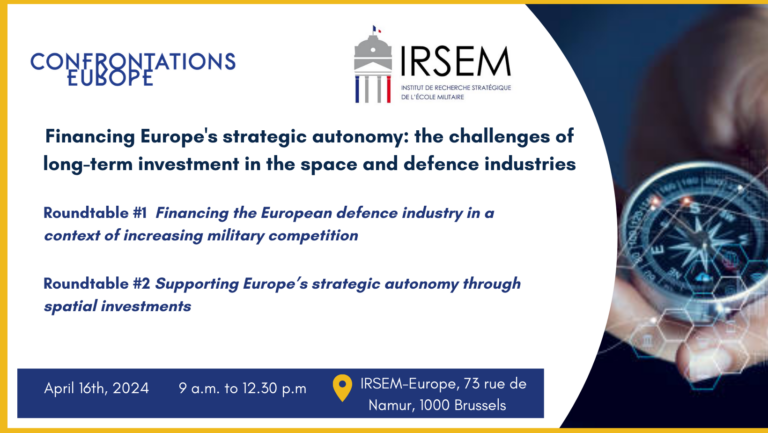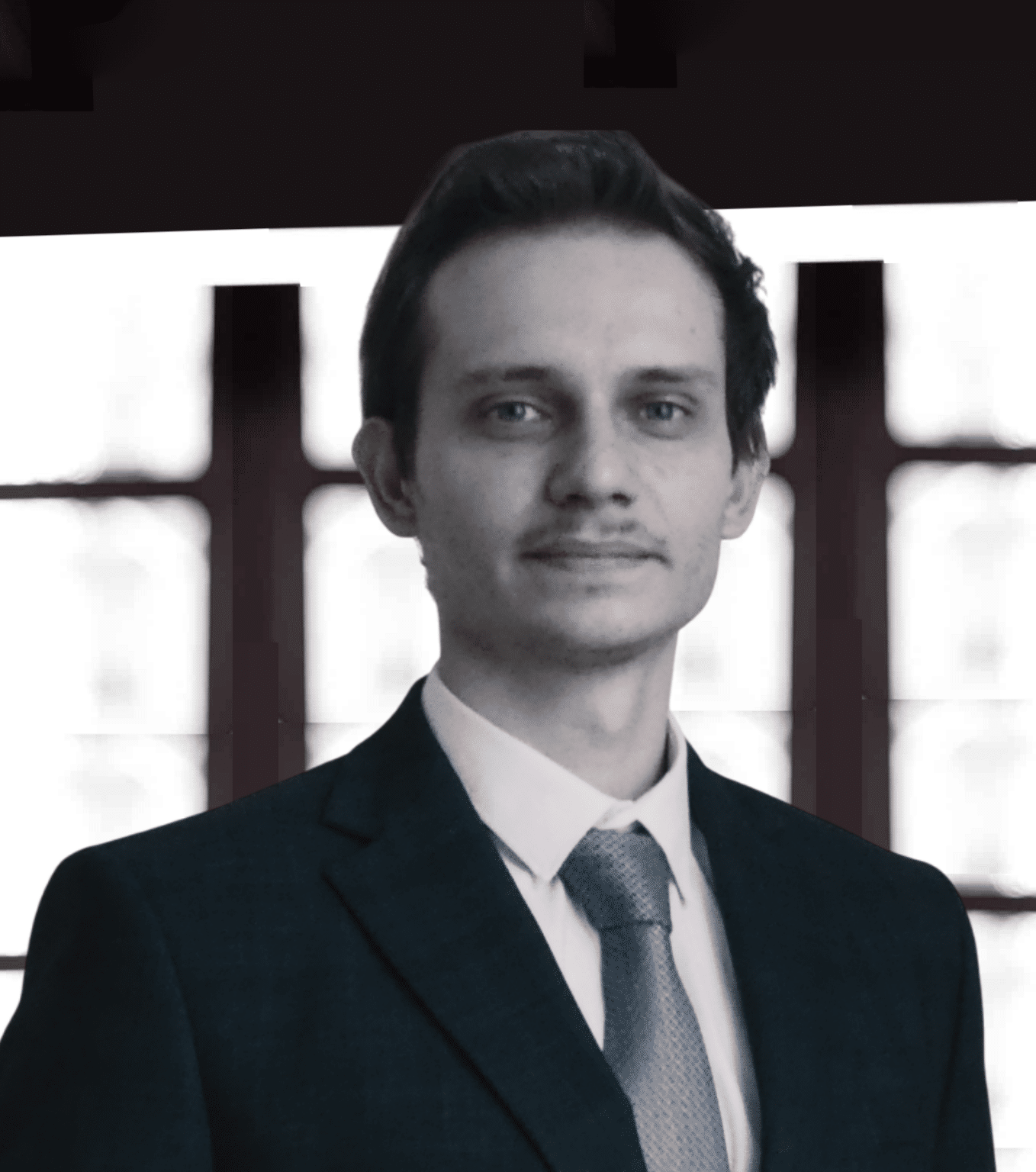
Date / Heure
16/04/2024
9 h 00 min - 12 h 30 min
Tuesday 16th April 2024, from 9:00 am to 12:30 pm, at IRSEM-Europe (73 rue de Namur, 1000 Brussels).
In a context marked by an increasing number of announcements concerning the expansion of national defence budgets in Europe and investment in ammunition production, the question of long-term investment in European defence industries is now being raised in a particularly timely manner. Hence, Europe is falling well behind in terms of investment in R&D and equipment spending, which accounts for around 17-20% of European defence budgets, compared to roughly 30% for the budget of the US Department of Defence. At the same time, the trend over the last few decades for European public and private banks to increasingly limit their investment in defence companies is hampering the European defence industry’s ability to innovate. Finally, the fragmentation of European industrial players in the face of their major competitors from outside Europe and the tendency of many EU and NATO Member States to make « off-the-shelf purchases » considerably restrict the development of an autonomous European defence industry capable of meeting the needs of a European and Europeanised defence.
In such a turbulent context, it therefore seems essential for Confrontations Europe to raise, through a dedicated symposium, the issue of financing European strategic autonomy in the defence and space sectors in order to give Europe the means to achieve the rise in military capacities that has been put forward by European and national policy-makers since the start of the full-scale invasion of Ukraine.
Program of the symposium :
Date and hour : April 2024, morning (3h30) Location : Brussels, Belgium
9:00 – Welcoming address by Michel Derdevet, President of Confrontations Europe and Benoît Rademacher, Director of IRSEM and/or Philippe Perchoc, Head of IRSEM Europe
9:15 – Keynote : Benedetta Berti, Head, Policy Planning, Office of the Secretary General
9:30 – 1st roundtable : Financing the European defence industry in a context of increasing military competition
While the war in Ukraine has revealed the weaknesses of European military forces with regard to their ammunition stockpiles, it has also highlighted the shortcomings of the European defence industry when it comes to innovation and the conception of certain key equipment and system components such as drones or long-range artillery. It is therefore paramount to address the reasons explaining why European industry is lagging behind, particularly in terms of R&D funding. To this end, we wish to gather stakeholders from public and private banking institutions, as well as actors of the European defence industry and representatives of the European administrations tasked with organizing the public answer in response to the above issues.
- François Arbault, Director – Coordinator for defence, DG DEFIS
- Hannah Neumann, (MEP, Group of the Greens/European Free Alliance) – Member of Subcommittee on Security and Defence
- Bertrand de Cordoue, Head of EU & NATO Public Affairs, Airbus
- Robert de Groot, Vice-President of the European Investment Bank – tbc
- Federico Santopinto, Director of Research at IRIS, in charge of the Europe, Strategy and Security Program
Moderator – Jacques Maire, Administrator of Confrontations Europe
10:50 – 2nd roundtable : Supporting Europe’s strategic autonomy through spatial investments
The last decade has seen a considerable increase in space spending around the world, as well as a proliferation of players keen to join the space race. Hence, countries like the India, Brazil or the UAE that were traditionally perceived as holding a “second-rank position” in space exploration and technologies, now assume a quasi-leading role in certain fields. This start for a new space race is also symbolized by the expected of 41% for space expenditures in the next five years. In addition, the increase of private actors associated to space research strengthens this competition for which Europe, despite its initial lead, must prepare itself if it doesn’t want to fall behind.
- Olivier Lemaitre, Secretary-General, Europsace
- Captain Béatrice Hainaut, Researcher on space policy, IRSEM
- Guillaume de la Brosse, Head of Unit for Innovation and New Space – Space Defence, DG DEFIS
- Lola Merveille, Head of EU Public Affairs Office, Bpifrance – tbc
Moderator – Dr Simon Desplanques, Visiting professor, UCLouvain and co-host of podcast 20 Minutes pour Comprendre (20 MPC)
12:10 – Closure remarks by
General André Denk, Deputy Chief Executive, European Defence Agency (EDA)












